- Home
- F. Scott Fitzgerald
The Best Early Stories of F. Scott Fitzgerald Page 7
The Best Early Stories of F. Scott Fitzgerald Read online
Page 7
“I used to enjoy it,” mused Horace, “but it would take up too much time now.”
“All right,” said Marcia. “I’ll make a bargain with you. You join a gym and I’ll read one of those books from the brown row of ’em.”
“ ‘Pepys’ Diary’?26 Why, that ought to be enjoyable. He’s very light.”
“Not for me—he isn’t. It’ll be like digesting plate glass. But you been telling me how much it’d broaden my lookout. Well, you go to a gym three nights a week and I’ll take one big dose of Sammy.”
Horace hesitated.
“Well——”
“Come on, now! You do some giant swings for me and I’ll chase some culture for you.”
So Horace finally consented, and all through a baking summer he spent three and sometimes four evenings a week experimenting on the trapeze in Skipper’s Gymnasium. And in August he admitted to Marcia that it made him capable of more mental work during the day.
“Mens sana in corpore sano,” 27 he said.
“Don’t believe in it,” replied Marcia. “I tried one of those patent medicines once and they’re all bunk. You stick to gymnastics.”
One night in early September while he was going through one of his contortions on the rings in the nearly deserted room he was addressed by a meditative fat man whom he had noticed watching him for several nights.
“Say, lad, do that stunt you were doin’ last night.”
Horace grinned at him from his perch.
“I invented it,” he said. “I got the idea from the fourth proposition of Euclid.”28
“What circus he with?”
“He’s dead.”
“Well, he must of broke his neck doin’ that stunt. I set here last night thinkin’ sure you was goin’ to break yours.”
“Like this!” said Horace, and swinging onto the trapeze he did his stunt.
“Don’t it kill your neck an’ shoulder muscles?”
“It did at first, but inside of a week I wrote the quod erat demonstrandum29 on it.”
“Hm!”
Horace swung idly on the trapeze.
“Ever think of takin’ it up professionally?” asked the fat man.
“Not I.”
“Good money in it if you’re willin’ to do stunts like ’at an’ can get away with it.”
“Here’s another,” chirped Horace eagerly, and the fat man’s mouth dropped suddenly agape as he watched this pink-jerseyed Prometheus 30 again defy the gods and Isaac Newton.31
The night following this encounter Horace got home from work to find a rather pale Marcia stretched out on the sofa waiting for him.
“I fainted twice to-day,” she began without preliminaries.
“What?”
“Yep. You see baby’s due in four months now. Doctor says I ought to have quit dancing two weeks ago.”
Horace sat down and thought it over.
“I’m glad, of course,” he said pensively—“I mean glad that we’re going to have a baby. But this means a lot of expense.”
“I’ve got two hundred and fifty in the bank,” said Marcia hopefully, “and two weeks’ pay coming.”
Horace computed quickly.
“Including my salary, that’ll give us nearly fourteen hundred for the next six months.”
Marcia looked blue.
“That all? Course I can get a job singing somewhere this month. And I can go to work again in March.”
“Of course nothing!” said Horace gruffly. “You’ll stay right here. Let’s see now—there’ll be doctor’s bills and a nurse, besides the maid. We’ve got to have some more money.”
“Well,” said Marcia wearily, “I don’t know where it’s coming from. It’s up to the old head now. Shoulders is out of business.”
Horace rose and pulled on his coat.
“Where are you going?”
“I’ve got an idea,” he answered. “I’ll be right back.”
Ten minutes later as he headed down the street toward Skipper’s Gymnasium he felt a placid wonder, quite unmixed with humor, at what he was going to do. How he would have gaped at himself a year before! How every one would have gaped! But when you opened your door at the rap of life you let in many things.
The gymnasium was brightly lit, and when his eyes became accustomed to the glare he found the meditative fat man seated on a pile of canvas mats smoking a big cigar.
“Say,” began Horace directly, “were you in earnest last night when you said I could make money on my trapeze stunts?”
“Why, yes,” said the fat man in surprise.
“Well, I’ve been thinking it over, and I believe I’d like to try it. I could work at night and on Saturday afternoons—and regularly if the pay is high enough.”
The fat man looked at his watch.
“Well,” he said, “Charlie Paulson’s the man to see. He’ll book you inside of four days, once he sees you work out. He won’t be in now, but I’ll get hold of him for to-morrow night.”
The fat man was as good as his word. Charlie Paulson arrived next night and put in a wondrous hour watching the prodigy swoop through the air in amazing parabolas, and on the night following he brought two large men with him who looked as though they had been born smoking black cigars and talking about money in low, passionate voices. Then on the succeeding Saturday Horace Tarbox’s torso made its first professional appearance in a gymnastic exhibition at the Cole-man Street Gardens. But though the audience numbered nearly five thousand people, Horace felt no nervousness. From his childhood he had read papers to audiences—learned that trick of detaching himself.
“Marcia,” he said cheerfully later that same night, “I think we’re out of the woods. Paulson thinks he can get me an opening at the Hippodrome,32 and that means an all-winter engagement. The Hippodrome, you know, is a big——”
“Yes, I believe I’ve heard of it,” interrupted Marcia, “but I want to know about this stunt you’re doing. It isn’t any spectacular suicide, is it?”
“It’s nothing,” said Horace quietly. “But if you can think of any nicer way of a man killing himself than taking a risk for you, why that’s the way I want to die.”
Marcia reached up and wound both arms tightly round his neck.
“Kiss me,” she whispered, “and call me ‘dear heart.’ I love to hear you say ‘dear heart.’ And bring me a book to read to-morrow. No more Sam Pepys, but something trick and trashy. I’ve been wild for something to do all day. I felt like writing letters, but I didn’t have anybody to write to.”
“Write to me,” said Horace. “I’ll read them.”
“I wish I could,” breathed Marcia. “If I knew words enough I could write you the longest love-letter in the world—and never get tired.”
But after two more months Marcia grew very tired indeed, and for a row of nights it was a very anxious, weary-looking young athlete who walked out before the Hippodrome crowd. Then there were two days when his place was taken by a young man who wore pale blue instead of white, and got very little applause. But after the two days Horace appeared again, and those who sat close to the stage remarked an expression of beatific happiness on that young acrobat’s face, even when he was twisting breathlessly in the air in the middle of his amazing and original shoulder swing. After that performance he laughed at the elevator man and dashed up the stairs to the flat five steps at a time—and then tiptoed very carefully into a quiet room.
“Marcia,” he whispered.
“Hello!” She smiled up at him wanly. “Horace, there’s something I want you to do. Look in my top bureau drawer and you’ll find a big stack of paper. It’s a book—sort of—Horace. I wrote it down in these last three months while I’ve been laid up. I wish you’d take it to that Peter Boyce Wendell who put my letter in his paper. He could tell you whether it’d be a good book. I wrote it just the way I talk, just the way I wrote that letter to him. It’s just a story about a lot of things that happened to me. Will you take it to him, Horace?”
“Yes
, darling.”
He leaned over the bed until his head was beside her on the pillow, and began stroking back her yellow hair.
“Dearest Marcia,” he said softly.
“No,” she murmured, “call me what I told you to call me.”
“Dear heart,” he whispered passionately—“dearest, dearest heart.”
“What’ll we call her?”
They rested a minute in happy, drowsy content, while Horace considered.
“We’ll call her Marcia Hume Tarbox,” he said at length.
“Why the Hume?”
“Because he’s the fellow who first introduced us.”
“That so?” she murmured, sleepily surprised. “I thought his name was Moon.”
Her eyes closed, and after a moment the slow, lengthening surge of the bedclothes over her breast showed that she was asleep.
Horace tiptoed over to the bureau and opening the top drawer found a heap of closely scrawled, lead-smeared pages. He looked at the first sheet:
SANDRA PEPYS, SYNCOPATED BY MARCIA TARBOX
He smiled. So Samuel Pepys had made an impression on her after all. He turned a page and began to read. His smile deepened—he read on. Half an hour passed and he became aware that Marcia had waked and was watching him from the bed.
“Honey,” came in a whisper.
“What, Marcia?”
“Do you like it?”
Horace coughed.
“I seem to be reading on. It’s bright.”
“Take it to Peter Boyce Wendell. Tell him you got the highest marks in Princeton once and that you ought to know when a book’s good. Tell him this one’s a world beater.”
“All right, Marcia,” said Horace gently.
Her eyes closed again and Horace crossing over kissed her forehead—stood there for a moment with a look of tender pity. Then he left the room.
All that night the sprawly writing on the pages, the constant mistakes in spelling and grammar, and the weird punctuation danced before his eyes. He woke several times in the night, each time full of a welling chaotic sympathy for this desire of Marcia’s soul to express itself in words. To him there was something infinitely pathetic about it, and for the first time in months he began to turn over in his mind his own half-forgotten dreams.
He had meant to write a series of books, to popularize the new realism as Schopenhauer33 had popularized pessimism and William James pragmatism.34
But life hadn’t come that way. Life took hold of people and forced them into flying rings. He laughed to think of that rap at his door, the diaphanous shadow in Hume, Marcia’s threatened kiss.
“And it’s still me,” he said aloud in wonder as he lay awake in the darkness. “I’m the man who sat in Berkeley with temerity to wonder if that rap would have had actual existence had my ear not been there to hear it. I’m still that man. I could be electrocuted for the crimes he committed.
“Poor gauzy souls trying to express ourselves in something tangible. Marcia with her written book; I with my unwritten ones. Trying to choose our mediums and then taking what we get—and being glad.”
V
“Sandra Pepys, Syncopated,” with an introduction by Peter Boyce Wendell, the columnist, appeared serially in Jordan’s Magazine, and came out in book form in March. From its first published instalment it attracted attention far and wide. A trite enough subject—a girl from a small New Jersey town coming to New York to go on the stage— treated simply, with a peculiar vividness of phrasing and a haunting undertone of sadness in the very inadequacy of its vocabulary, it made an irresistible appeal.
Peter Boyce Wendell, who happened at that time to be advocating the enrichment of the American language by the immediate adoption of expressive vernacular words, stood as its sponsor and thundered his indorsement over the placid bromides of the conventional reviewers.
Marcia received three hundred dollars an instalment for the serial publication, which came at an opportune time, for though Horace’s monthly salary at the Hippodrome was now more than Marcia’s had ever been, young Marcia was emitting shrill cries which they interpreted as a demand for country air. So early April found them installed in a bungalow in Westchester County, with a place for a lawn, a place for a garage, and a place for everything, including a sound-proof impregnable study, in which Marcia faithfully promised Mr. Jordan she would shut herself up when her daughter’s demands began to be abated, and compose immortally illiterate literature.
“It’s not half bad,” thought Horace one night as he was on his way from the station to his house. He was considering several prospects that had opened up, a four months’ vaudeville offer in five figures, a chance to go back to Princeton in charge of all gymnasium work. Odd! He had once intended to go back there in charge of all philosophic work, and now he had not even been stirred by the arrival in New York of Anton Laurier, his old idol.
The gravel crunched raucously under his heel. He saw the lights of his sitting-room gleaming and noticed a big car standing in the drive. Probably Mr. Jordan again, come to persuade Marcia to settle down to work.
She had heard the sound of his approach and her form was silhouetted against the lighted door as she came out to meet him.
“There’s some Frenchman here,” she whispered nervously. “I can’t pronounce his name, but he sounds awful deep. You’ll have to jaw with him.”
“What Frenchman?”
“You can’t prove it by me. He drove up an hour ago with Mr. Jordan, and said he wanted to meet Sandra Pepys, and all that sort of thing.”
Two men rose from chairs as they went inside.
“Hello, Tarbox,” said Jordan. “I’ve just been bringing together two celebrities. I’ve brought M’sieur Laurier out with me. M’sieur Laurier, let me present Mr. Tarbox, Mrs. Tarbox’s husband.”
“Not Anton Laurier!” exclaimed Horace.
“But, yes. I must come. I have to come. I have read the book of Madame, and I have been charmed”—he fumbled in his pocket—“ah, I have read of you too. In this newspaper which I read to-day it has your name.”
He finally produced a clipping from a magazine.
“Read it!” he said eagerly. “It has about you too.”
Horace’s eye skipped down the page.
“A distinct contribution to American dialect literature,” it said. “No attempt at literary tone; the book derives its very quality from this fact, as did ‘Huckleberry Finn.’ ”
Horace’s eyes caught a passage lower down; he became suddenly aghast—read on hurriedly:
“Marcia Tarbox’s connection with the stage is not only as a spectator but as the wife of a performer. She was married last year to Horace Tarbox, who every evening delights the children at the Hippodrome with his wondrous flying-ring performance. It is said that the young couple have dubbed themselves Head and Shoulders, referring doubtless to the fact that Mrs. Tarbox supplies the literary and mental qualities, while the supple and agile shoulders of her husband contribute their share to the family fortunes.
“Mrs. Tarbox seems to merit that much-abused title—‘prodigy.’ Only twenty——”
Horace stopped reading, and with a very odd expression in his eyes gazed intently at Anton Laurier.
“I want to advise you—” he began hoarsely.
“What?”
“About raps. Don’t answer them! Let them alone—have a padded door.”
THE ICE PALACE
The sunlight dripped over the house like golden paint over an art jar, and the freckling shadows here and there only intensified the rigor of the bath of light. The Butterworth and Larkin houses flanking were intrenched behind great stodgy trees; only the Happer house took the full sun, and all day long faced the dusty road-street with a tolerant kindly patience. This was the city of Tarleton in southernmost Georgia, September afternoon.
Up in her bedroom window Sally Carrol Happer rested her nineteen-year-old chin on a fifty-two-year-old sill and watched Clark Darrow’s ancient Ford turn the corner. The car was ho
t—being partly metallic it retained all the heat it absorbed or evolved—and Clark Darrow sitting bolt upright at the wheel wore a pained, strained expression as though he considered himself a spare part, and rather likely to break. He laboriously crossed two dust ruts, the wheels squeaking indignantly at the encounter, and then with a terrifying expression he gave the steering-gear a final wrench and deposited self and car approximately in front of the Happer steps. There was a plaintive heaving sound, a death-rattle, followed by a short silence; and then the air was rent by a startling whistle.
Sally Carrol gazed down sleepily. She started to yawn, but finding this quite impossible unless she raised her chin from the window-sill, changed her mind and continued silently to regard the car, whose owner sat brilliantly if perfunctorily at attention as he waited for an answer to his signal. After a moment the whistle once more split the dusty air.
“Good mawnin’.”
With difficulty Clark twisted his tall body round and bent a distorted glance on the window.
“’Tain’t mawnin’, Sally Carrol.”
“Isn’t it, sure enough?”
“What you doin’?”
“Eatin’ ’n apple.”
“Come on go swimmin’—want to?”
“Reckon so.”
“How ’bout hurryin’ up?”
“Sure enough.”
Sally Carrol sighed voluminously and raised herself with profound inertia from the floor, where she had been occupied in alternately destroying parts of a green apple and painting paper dolls for her younger sister. She approached a mirror, regarded her expression with a pleased and pleasant languor, dabbed two spots of rouge on her lips and a grain of powder on her nose, and covered her bobbed corn-colored hair with a rose-littered sunbonnet. Then she kicked over the painting water, said, “Oh, damn!”—but let it lay—and left the room.
“How you, Clark?” she inquired a minute later as she slipped nimbly over the side of the car.
“Mighty fine, Sally Carrol.”
“Where we go swimmin’?”
“Out to Walley’s Pool. Told Marylyn we’d call by an’ get her an’ Joe Ewing.”

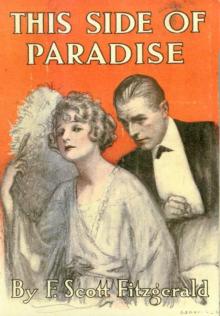 This Side of Paradise
This Side of Paradise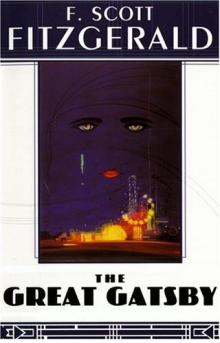 The Great Gatsby
The Great Gatsby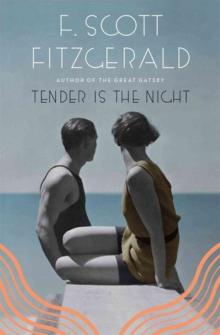 Tender Is the Night
Tender Is the Night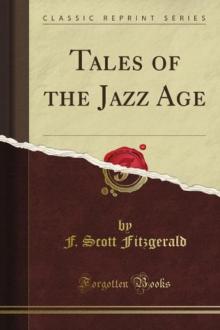 Tales of the Jazz Age (Classic Reprint)
Tales of the Jazz Age (Classic Reprint)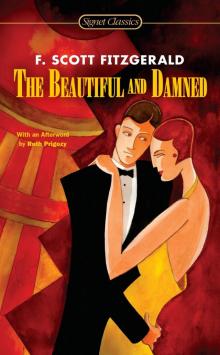 The Beautiful and Damned
The Beautiful and Damned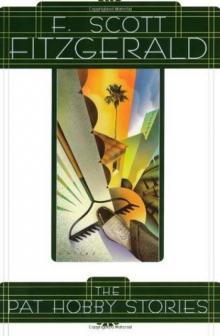 The Pat Hobby Stories
The Pat Hobby Stories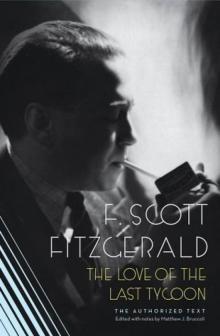 The Love of the Last Tycoon
The Love of the Last Tycoon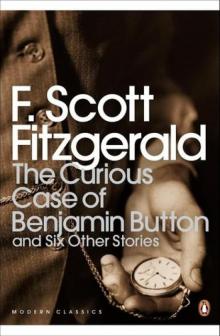 The Curious Case of Benjamin Button and Six Other Stories
The Curious Case of Benjamin Button and Six Other Stories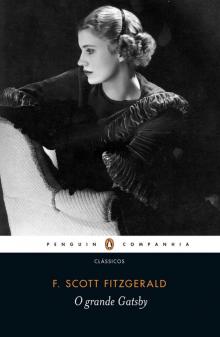 O Grande Gatsby (Penguin)
O Grande Gatsby (Penguin)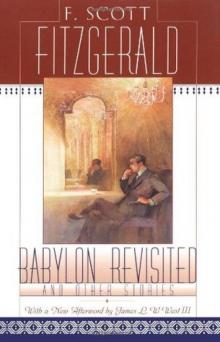 Babylon Revisited and Other Stories
Babylon Revisited and Other Stories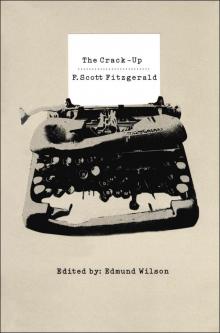 The Crack-Up
The Crack-Up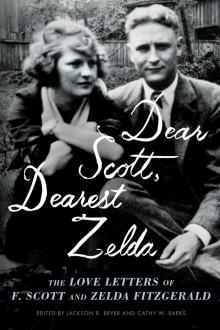 Dear Scott, Dearest Zelda
Dear Scott, Dearest Zelda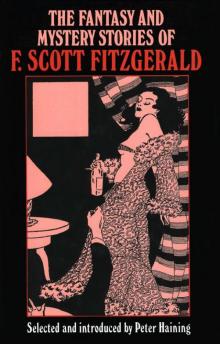 The Fantasy and Mystery Stories of F Scott Fitzgerald
The Fantasy and Mystery Stories of F Scott Fitzgerald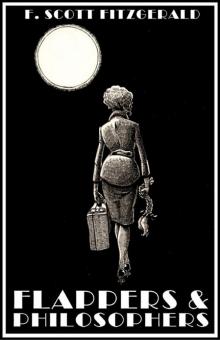 Flappers and Philosophers
Flappers and Philosophers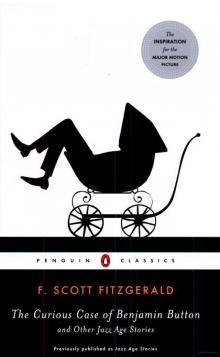 The Curious Case of Benjamin Button and Other Jazz Age Stories (Penguin Classics)
The Curious Case of Benjamin Button and Other Jazz Age Stories (Penguin Classics)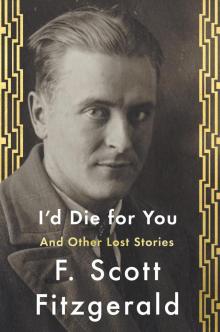 I'd Die For You
I'd Die For You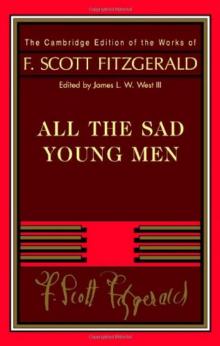 All the Sad Young Men
All the Sad Young Men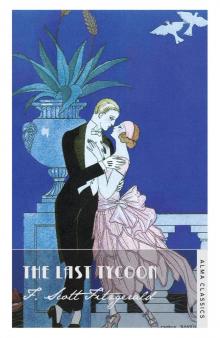 The Last Tycoon
The Last Tycoon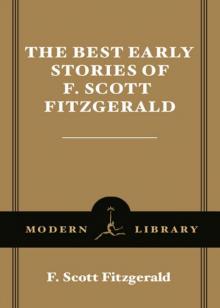 The Best Early Stories of F. Scott Fitzgerald
The Best Early Stories of F. Scott Fitzgerald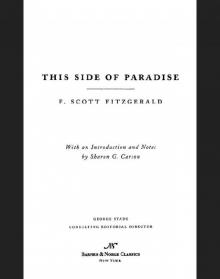 This Side of Paradise (Barnes & Noble Classics Series)
This Side of Paradise (Barnes & Noble Classics Series)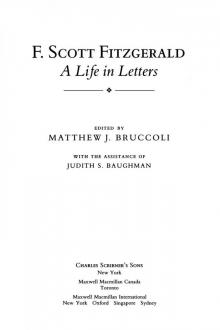 A Life in Letters
A Life in Letters Beautiful and Damned (Barnes & Noble Classics Series)
Beautiful and Damned (Barnes & Noble Classics Series) The Curious Case of Benjamin Button and Other Jazz Age Stories
The Curious Case of Benjamin Button and Other Jazz Age Stories Tales of the Jazz Age
Tales of the Jazz Age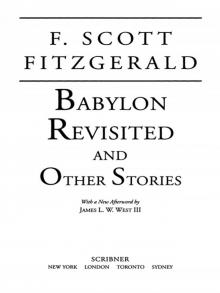 Babylon Revisited
Babylon Revisited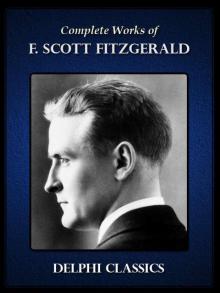 Complete Works of F. Scott Fitzgerald UK (Illustrated)
Complete Works of F. Scott Fitzgerald UK (Illustrated)